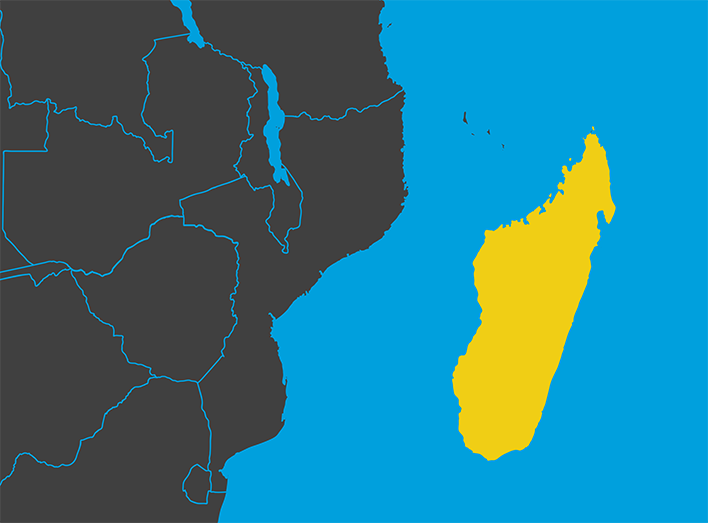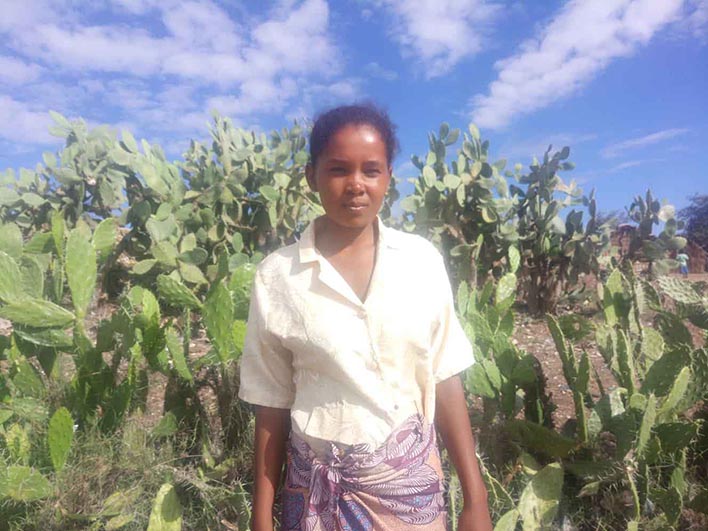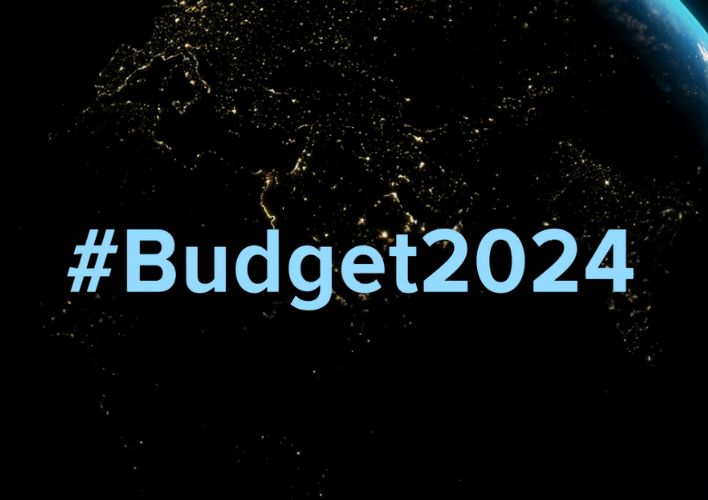Country: Madagascar
Partner/Member: Church of Jesus Christ in Madagascar/World Renew
For Anjarasoa Natolotra Fanevanay (pictured above), the occurrence of drought in her home region of Anosy in Madagascar, presented yet another barrier to reliably providing food for herself and her family. The harvest from their land was not good. Anjarasoa and her three children resorted to eating only once a day to cope with the challenging situation. With a sick child in the home, she felt she had no choice but to start selling her family’s belongings and animals to ensure she could continue to provide for her children.
Home to approximately 500,000 people, many families living in the Anosy region of Madagascar are reliant on agriculture for their livelihoods – like most of the country. But Anosy is also a region vulnerable to the impacts of climate change that is making farming harder and harder after three consecutive years of severe drought.
Their situation has worsened through the COVID-19 pandemic, with less food available, higher food prices and fewer opportunities to earn additional income.
Through our member World Renew and their partner Church of Jesus Christ in Madagascar, 1,500 households, including Anjarasoa’s, were invited to participate in a drought response and recovery project.

Southern Madagascar is home to what the United Nations is calling the world’s first climate change famine. The worst drought in 40 years has made it almost impossible for people to grow their own food for nearly three years now.
Monthly distributions of rice and cash-for-food helped the family go from eating one meal a day to at least three meals a day. Anjarasoa received a sheep to help her earn an income in the longer term, learned business skills and is now in a better position to be able to care for the nutritional needs of her sick child.
People like Anjarasoa are the reason we advocate for measures that help with adapting to climate change in the majority world—because those who are already vulnerable to poverty and food insecurity are the ones hardest hit by a changing climate. The climate crisis threatens to push up to 180 million more people globally into hunger by 2050, and the Foodgrains Bank is committed to seeing that number decrease dramatically.
Zero is our goal.
This article was published in the winter 2022 edition of Breaking Bread.



